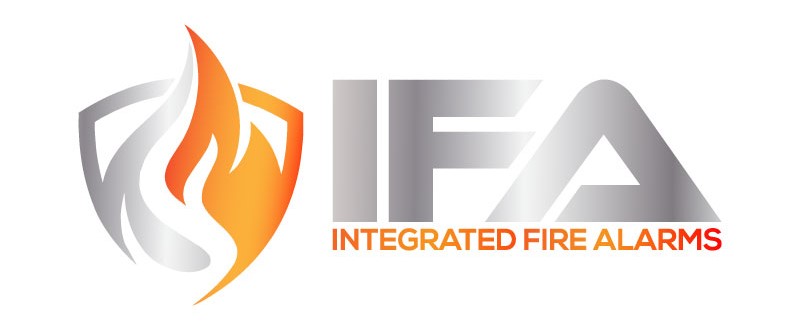Fire alarm monitoring contracts are essential agreements between property owners and alarm monitoring companies to ensure the safety and security of their premises. This article will delve into the intricacies of these contracts, discussing the legalities, recent court rulings, and the competitive landscape between public and private entities in the fire alarm monitoring industry.
The Importance of Fire Alarm Monitoring Contracts
Fire alarm monitoring contracts play a crucial role in enhancing the safety of commercial and residential properties. These agreements outline the responsibilities and obligations of both the property owner and the alarm monitoring company in ensuring the proper functioning and maintenance of fire alarm systems. The contracts also define the terms and conditions, including service fees, response protocols, and the duration of the agreement.
Benefits of Fire Alarm Monitoring Contracts
Reliability and professionalism: A well-structured fire alarm monitoring contract ensures that the alarm monitoring company is accountable for providing reliable and professional services.
Regulatory compliance: Fire alarm monitoring contracts help property owners comply with local fire and safety codes, avoiding potential fines and penalties.
Reduced liability: Property owners can minimize their liability for fire-related incidents by entrusting the monitoring and maintenance of their fire alarm systems to a reputable company.
24/7 monitoring: Fire alarm monitoring contracts guarantee round-the-clock monitoring of the property, ensuring a rapid response in case of a fire emergency.
Legalities Surrounding Fire Alarm Monitoring Contracts
The legal landscape governing fire alarm monitoring contracts varies by jurisdiction, with different states and municipalities enacting their own regulations and requirements. It is essential for property owners and alarm monitoring companies to understand and adhere to these local laws to avoid any legal disputes or liabilities.
Licensing and Certification
Alarm monitoring companies must obtain the necessary licenses and certifications to operate within a specific jurisdiction. These requirements may include passing a background check, completing a training program, and demonstrating compliance with industry standards and best practices.
Contract Requirements
Fire alarm monitoring contracts must be drafted in accordance with local regulations, which may stipulate specific provisions or clauses that must be included in the agreement. For example, some jurisdictions may require the contract to include a detailed description of the alarm system, the monitoring company’s response protocols, and the fees associated with the service.
Public vs. Private Entities
In some cases, public fire districts may also enter the fire alarm monitoring market, competing with private companies for contracts. This has led to legal disputes and court rulings that seek to balance the rights and responsibilities of public and private entities in the fire alarm monitoring industry.
Recent Court Rulings and Their Implications
The ongoing legal dispute between public fire districts and private alarm monitoring companies in Illinois has attracted nationwide attention, as it carries implications for the fire alarm monitoring industry in other states.
The Lisle-Woodridge Fire Protection District Case
The case began in 2009 when the Lisle-Woodridge Fire Protection District in Illinois adopted an ordinance that put itself solely in charge of fire monitoring within its jurisdiction. The district invalidated existing fire alarm monitoring contracts between private companies and property owners, claiming that its arrangement was safer and more efficient.
This move was challenged by ADT and other alarm companies, who argued that the public fire district lacked the authority to take over fire alarm monitoring services and that their actions were financially motivated.
The 7th U.S. Circuit Court of Appeals Ruling
In a significant ruling, the 7th U.S. Circuit Court of Appeals overturned a lower court’s decision, stating that public fire districts have the legal right to engage in fire alarm monitoring services. However, the court also ruled that public fire districts cannot displace the private fire alarm monitoring market.
The court’s decision has been met with mixed reactions, as both sides await a detailed legal explanation of the ruling. The outcome of this case could have far-reaching implications for the fire alarm monitoring industry across the United States.
The Competitive Landscape Between Public and Private Entities
The court ruling in the Lisle-Woodridge case raises questions about the competitive dynamics between public fire districts and private alarm monitoring companies. How will this ruling impact the fire alarm monitoring industry, and what does it mean for property owners seeking fire alarm monitoring contracts?
Public Fire Districts as Competitors
One possible interpretation of the court ruling is that public fire districts will now be able to compete with private companies in the fire alarm monitoring market. This could lead to increased competition and potentially lower prices for property owners seeking fire alarm monitoring services.
The Role of Private Alarm Monitoring Companies
Despite the entrance of public fire districts into the market, private alarm monitoring companies will continue to play a crucial role in providing superior service, advanced technology, and competitive pricing. These companies have a proven track record of success and expertise in the industry, which will be essential in maintaining a competitive edge.
How Property Owners Can Make Informed Decisions
With the potential for increased competition between public and private entities in the fire alarm monitoring market, property owners must be well-informed when selecting an alarm monitoring company and entering into fire alarm monitoring contracts.
Evaluating Service Providers
Property owners should thoroughly research and compare different alarm monitoring companies, taking into consideration factors such as:
Licensing and certification
Reputation and track record
Technological capabilities
Response protocols and procedures
Pricing and contract terms
Reviewing Contract Terms
Before signing a fire alarm monitoring contract, property owners should carefully review the terms and conditions to ensure they fully understand their rights and responsibilities. This includes understanding the monitoring company’s obligations, fees associated with the service, and the duration of the agreement.
Consulting Legal Counsel
Given the complexities surrounding fire alarm monitoring contracts and the legal obligations involved, property owners may benefit from consulting with legal counsel to ensure their contract complies with local regulations and adequately protects their interests.
The Future of Fire Alarm Monitoring Contracts
As the legal landscape surrounding fire alarm monitoring contracts continues to evolve, it is essential for property owners and alarm monitoring companies to stay informed of any changes in regulations and industry trends.
Technological Advancements
Technology continues to play a significant role in the fire alarm monitoring industry, with new innovations and advancements offering enhanced monitoring capabilities and improved response times. Property owners and alarm monitoring companies must stay up-to-date with these developments to ensure their fire alarm systems remain effective and compliant with industry standards.
Regulatory Changes
As the legal environment surrounding fire alarm monitoring contracts shifts, both public and private entities must be prepared to adapt to any changes in local laws and requirements. Staying informed and maintaining open communication will be key to navigating these changes successfully.
Collaboration Between Public and Private Entities
The fire alarm monitoring industry would benefit from increased collaboration and communication between public fire districts and private alarm monitoring companies. By working together, these entities can ensure the highest level of safety and security for property owners and their communities.
Conclusion
Fire alarm monitoring contracts are essential agreements that play a crucial role in enhancing the safety of commercial and residential properties. With the ongoing legal dispute between public fire districts and private alarm monitoring companies in Illinois, it is essential for property owners and alarm monitoring companies to understand the legal landscape and make informed decisions when entering into fire alarm monitoring contracts. The future of the fire alarm monitoring industry will depend on the ability of public and private entities to adapt to technological advancements, regulatory changes, and the need for increased collaboration.

